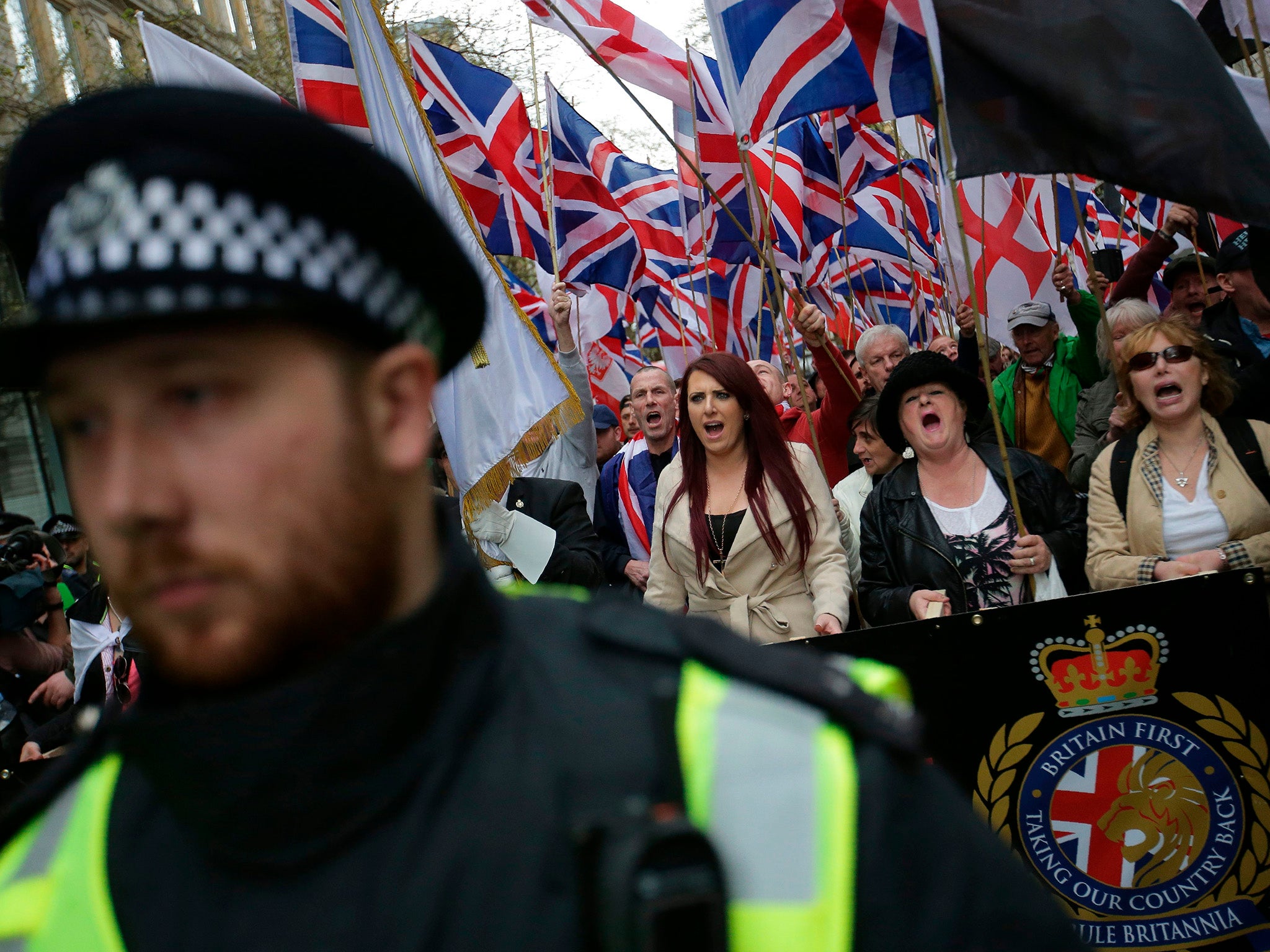How Facebook became one of the far-right’s biggest recruitment tools
Analysis: Extremists will find it much harder to draw new support after the social network’s latest purge, Lizzie Dearden writes

When Mark Zuckerberg set up Facebook in 2004, he could not have predicted that the university social network would morph into one of the most powerful recruitment tools for extremists around the world.
But that is what it became. For the British far right, Facebook was used for everything from event organisation to fundraising, networking, publicity and, most importantly, drawing in new recruits.
And they were phenomenally successful. Tommy Robinson, the founder of the English Defence League (EDL), amassed more than 1 million followers before his page was deleted.
Britain First, which was one of the groups permanently banned by Facebook on Thursday, once had over 2 million “likes”.
EDL factions, the British National Party (BNP) and National Front, were together followed by hundreds of thousands of people.
And each Facebook share took their hateful content to new audiences, reaching millions around the world.
By piggybacking on news events, the groups profited from algorithms that showed people what their friends were searching and liking.
Britain First built its unprecedented audience largely by creating images with inoffensive sentiments that were then shared by people with no idea the page represented a far-right group invading mosques and conducting “Christian patrols” in the offline world.
“Share if you think homeless veterans should be given homes,” the posts would read. “People who mistreat animals should be jailed, share if you agree!”
Far-right groups have also used news articles on terror attacks, immigration and other core issues for attention, before drawing viewers further into their ideology.
One of the EDL’s last posts before its page was deleted was a Daily Mail article claiming that “Isis fanatics are heartlessly revelling in the inferno at Notre Dame cathedral”, while the racist National Front had shared a report from the same newspaper on knife crime.
The BNP’s pinned message was a lengthy post characterising the New Zealand terror attack as a product of “multiculturalism”, and the EDL was painting France’s “yellow vest” protests as a “revolution”.
The alleged “betrayal” of Brexit has been a recent rallying cry, and 2018 saw the largest far-right demonstrations seen in London for decades – all organised on Facebook.
Although campaigners and members of the public would frequently report the pages, the reliance on news articles meant that Facebook found no violation of its conditions and refused to take them down, until Thursday.
In the wake of the Christchurch terror attack, the social media giant appears to finally be taking notice of years of evidence that its platform is inspiring racial and religious hatred.
Facebook prompted a wholesale shift from “real-world” to virtual recruitment that was faster, cheaper and more effective than the offline techniques of the past.
For a small number of far-right keyboard warriors, the sentiments expressed on Facebook translated into violence.
In 2017, a Britain First supporter told police he was going to “kill a Muslim” before making a Nazi salute and ploughing his car into an Indian restaurant.
The previous year, Thomas Mair repeatedly shouted “Britain first” while murdering Labour MP Jo Cox.
Neo-Nazi paedophile Jack Renshaw, who has been personally banned from Facebook after plotting to murder another Labour MP, previously led the BNP’s youth division.
It is true that deleted groups will simply move to another platform, but Facebook is used by a third of the world's population and no social network has yet come close to its reach.
Robinson’s million Facebook followers have been reduced to 30,500 on the encrypted messaging app Telegram, and other far-right groups have been pinned back to websites and email lists.
But while Facebook has banned some of the most prolific British far-right groups, others, including the anti-Islam Democratic Football Lads Alliance, have been allowed to remain.
On and offline, their support shows no sign of waning.
Join our commenting forum
Join thought-provoking conversations, follow other Independent readers and see their replies
Comments